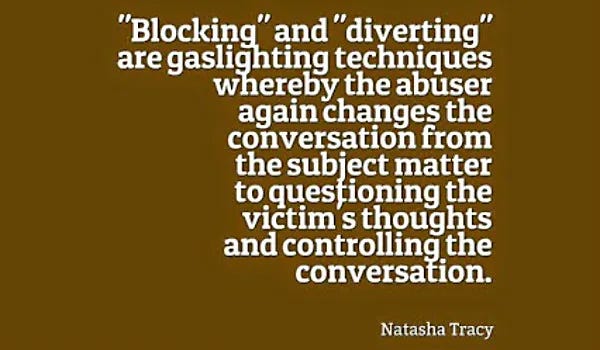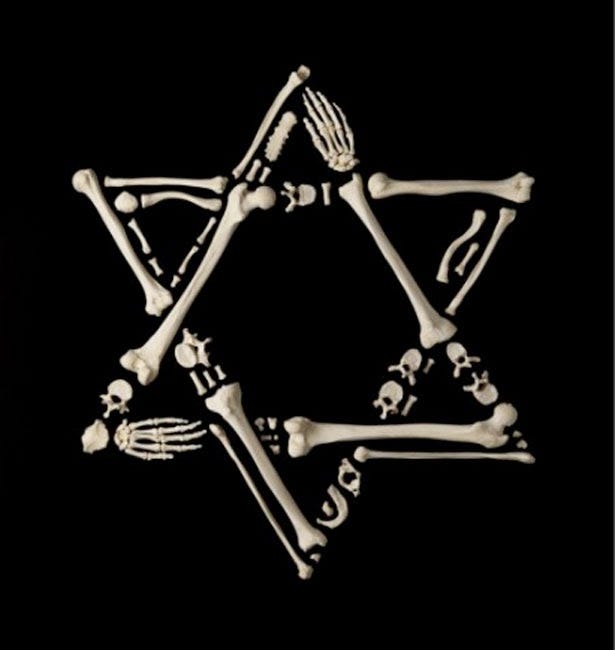Well, I honestly don’t know if this person who posted on one of my substack notes is jewish and a guy, but I will assume this is all true. This commentator, “Adam K,” claimed that he never understood the causes for “anti-Semitism” until recently, and wrote that he now believes that it is linked to character defects and delusions. He described “anti-Semites” as losers and failures.
I provided arguments and links to information-mainly my own substack posts-to help him understand that there are actually quite a few valid reasons for people to not like jews or judaism. This commentator ignored or hand-waved the information away, brought up unrelated topics, and never really engaged with any of the points I made. This poster also used a lot of ad hominem arguments and insults. While none of this surprised me, I would have really enjoyed engaging in an adult discussion about the causes of “antisemitism” with someone who was willing to consider a different opinion. In fact, I wish we could have an open, public, nationwide conversation about this topic and thoroughly discuss the Holohoax scam, the jewish Bolshevik genocide of tens of millions of Russians and Ukrainians, and the ongoing jewish genocide of the Palestinians. But this isn’t possible yet because to talk about these things openly and publicly is…wait for it….”antisemitic.” In other words, “hate speech.” In other words, for all intents and purposes, forbidden.
Think about that.
Anyway, I believe that this conversation provides good examples of jewish pilpul, the jewish strategy of stalling, diverting and derailing dialogues and debates with huge, steaming piles of rhetorical BS. It is what jewish supremacists do when they can’t actually block problematical JQ discussions by crying and screaming about “ANTISEMITISM!”
I have made a handful of edits to the conversation where words were missing or there were grammatical errors in the original posts. I believe that I have included all the posts, and in a generally correct order. The original discussion is located here.
Subjects discussed include the USS Liberty attack, 9/11, the Talmud, Media control, transgenderism, child grooming, etc.
I’ve lived a lifetime as a Jew, never understanding the psychology of antisemitism until recently. From my perspective, I’ve lived a moral life, have valued education, hard work, and contributed to my community and the success of other people. I have never cheated on my taxes, stolen any money, screwed anyone over, or expected special treatment. I am a proud, American, reliable friend, good neighbor, law abiding citizen, loyal husband, and loving father. I’ve never discriminated in my dealings with other people based on race, religion, social or economic status. I’ve dealt fairly with everybody in my life, my job, my friendships and my family. I’ve accepted others for their religious beliefs, cultural backgrounds, sexual preferences, and political affiliations. I speak plainly and honestly to every person I interact with, do not feel superior or inferior to any person solely based on their appearance or my own prejudices. I was not born into money, nor do I value money beyond utility. My goals and aspirations are happiness and security, and I have no desire to build wealth or power for their own sake. I have never felt all that different from any other person simply because I am Jewish. I grew up in a middle class American suburb, and my closest friends and I are no different despite coming from various other backgrounds. I am not a member of any synagogue or temple, nor do I believe that I am a member of some special group with greater entitlements or rights than any other human being. I’ve sympathized with the victims of war, poverty, political persecution, racism, physical disabilities, mental disabilities, disenfranchisement, and all other incidents of the human condition. I don’t think much about others’ race, religion, ethnicity, or sex. I do not recall ever receiving help simply because I am a Jew or ever being discriminated against simply because I am Jewish. I recognize ignorance for what it is and recognize my own prejudices. I’ve earned my place in the world and recognize those who helped me succeed. I’ve built people up, not torn people down, and supported those who supported me. From the perspective of the anti-Semite, I’ve succeeded because of a Jewish conspiracy to consolidate power for themselves. The anti-Semite cannot deal with the truth of his inadequacies and failures so he creates fairy tales and boogy-men to blame for his disappointments and life situation. Unfortunately for the anti-Semite it’s never worked and it never will because lying to oneself to avoid confronting character defects prevents growth as a human being and stifles movement in other directions. The anti-Semite is his own worst enemy, much much worse than the fiction of some Jewish plan to keep him down. Ironically, anti-semitism is created by the anti-Semite to explain why he cannot succeed while others in life can, yet it is the delusion he created that traps him like a rat in a cage while the rest of the world lives freely around him.
Not all jews mass slaughter Palestinian women and babies like the Israeli jews do, or starve, torture and mass murder Christians and Muslims like the Bolshevik jews did, or constantly create wars with false flag attacks (like 9/11) as many powerful jews have done for over the last 100 years. But unfortunately, jews organized globally (JOG) have conspired together to do all of those things and lots, lots more, and our jew-controlled Media and publishing industry have covered up their crimes. Non-jews see all of this evil done by self-identifying jews against other non-jews, or against themselves, and it tends to create negative impressions in their minds about jews in general. So I am sorry if you are a good, kind, moral and compassionate person who has endured “antisemitism” because of the actions of your co-religionists, but surely you can understand where these negative attitudes towards jews-as a group-comes from? I want to note that in your post, you display two qualities that are generally associated with jews and which tend to create these bad feelings towards jews. These qualities are a lack of self-consciousness and a superiority complex. You seem to have no empathy for or desire to understand people who have legitimate grievances about jewish criminality, jewish wars and jewish genocides of Gentiles, and you crow about jewish superiority over “anti-Semites” who you describe as failures and losers. The attitude you express is part of the jewish ethnic stereotype that generates so much animosity towards jews. This post may help you better understand why so many people have negative feelings towards jews:
For your enlightenment, here is a big reason why lots of people don’t like jews—the jewish propensity to torture and mass murder Gentiles: https://www.unz.com/jcook/another-expert-report-finds-israel-is-committing-genocide-the-west-yawns/
EXCERPT: This page contains memes and some videos about jewish supremacism, as well as links to supporting information. This material is for the enlightenment and edification of people of all faiths and backgrounds-including jews. I am sure that kind, caring, compassionate non-supremacist jews value information like this that exposes their coreligionists’ bigotry, hatred, cruelty and sadistic, horrific violence against innocents and would want to share it with others-to warn them and to help make the world a better place. Exposing evil is exactly what kind, caring, compassionate people do.
The jewish Supremacist War on Humanity Meme Page III
This page contains memes and some videos about jewish supremacism, as well as links to supporting information. This material is for the enlightenment and edification of people of all faiths and backgrounds-including jews. I am sure that kind, caring, compassionate
Here is another post which you may find educational:
The Jewish Master Plan
The following post was copied from the wonderful, thought-provoking Stranger in a Jewish World blog. The information in this post mirrors a lot of what I have discovered from my research. The author weaves together many different aspects of the so-called “Jewish Question” and shows that the ultimate goal of jewish supremacists is a slave planet for the …
The only educational value of that post is to illustrate what antisemitism is and the strange obsession its author has with a group of people he doesn’t like for whatever reason.
I am glad that you are a good, moral, compassionate person. That is great! Please look at the information on this page as it should help you understand why lots of people have issues with jewish folks.
"Globalists" Versus Humanity Link Lists
In my posts I have included a few lists of supporting information and I thought that it would be useful to collect some of these lists on a single page. The information in the lists that I’ve selected for this page tie jewish supremacists to a large number of atrocities and crimes against humanity and indicates that judaism is a dangerous, murderous cul…
Links to other blogs? Why would anyone with a brain be persuaded by that?
I can’t figure out if you truly believe these myths or are intentionally spreading lies. Your preoccupation with Jews is exactly what puzzles me. Why not focus on improving yourself instead of attacking an entire race of human beings you don’t know?
Thank you for your reply. Can you specify what myth or what lie I am promoting as the truth? I am always looking to improve my substack, so I appreciate helpful, constructive criticism such as yours. Am I wrong that supremacist jews are waging a war on White majority countries by culturally subverting them and facilitating an invasion of them from the Third World? Am I wrong that jews created communism and inflicted it on the world, killing tens of millions of people in the process? Am I wrong that supremacist jews in Israel are currently genociding the Palestinians? Is there some other issue that I am mistaken about? Thank you for any feedback
Yes, wrong, wrong and wrong. There no such thing as a “supremacist Jew” which I understand is a trope used to mislead people about the meaning of Zionism. I have no idea why you think we are culturally subverting white people to promote illegal immigration. That theory is so bizarre I don’t know how to respond. I assume your reference to creating communism is based on Marx and Trotsky being Jewish. I don’t see how they differ from the founders of other political movements. Why are they more responsible for wars between nations any more than the founders of other political movements? As to your Genocide comment (setting aside your term “Supremecist Jews” which is not a real thing) my understanding is that a Palestinian terrorist group named Hamas killed thousands of Jews before kidnapping more than 250 Israelis. The terrorists then refused to release the kidnapped citizens knowing it would result in a war and thousands of deaths of Gazans. That same group hid the kidnapped Israelis in residential neighborhoods and in underground bunkers throughout Gaza so Israel had to search for them. Israel has been searching ever since and Hamas is still holding 100 people including American citizens. It could release them at any time to end the war which it refuses to do. So, no that is not Genocide, it is war between Israel and a terrorist group in a location chosen by the terrorists resulting in many unnecessary deaths of Palestinians and Israelis. Your blog is a remarkable conglomeration of classic antisemitic dehumanizing tropes, new-age anti-Zionist libel, false social media posts, and nonsensical conspiracy theories. If I were asked to identify antisemitism on Substack, I would use your blog as an example. This is exactly why Jews feel persecuted, no matter which direction they take in life. I am a Non-observant American citizen born to Jewish parents. I am not aware of any universal plan amongst Jews to attain power for its own sake, control governments, monopolize institutions, subvert other groups, or do any other sinister thing. I do not see any difference whatsoever between the government of Israel and any other nation trying to protect its citizens and preserve its Sovereignty. Possibly the most mind-boggling quality of antisemitism is the almost complete disregard for the extraordinary contributions that Jews have made to mankind for thousands of years. You probably have benefited from Jewish innovation, creativity, intelligence, And work ethic every day of your life, yet devote most of it to attacking Jews for things they have never even done.
»»»”I am a Non-observant American citizen born to Jewish parents. I am not aware of any universal plan amongst Jews to attain power for its own sake, control governments, monopolize institutions, subvert other groups, or do any other sinister thing.”
That may be so. I was not aware of all of this either until about two years ago after doing a lot of study. Prior to figuring all of this out, I was a strong supporter of Israel and had nothing bad to say about judaism. Spend some studying the material on my substack and maybe you will wake up too just like I did. Cheers.
You rely on a blogger based in Australia for information about Israel. Real journalism is reporting of facts either observed first hand or verified directly by multiple sources. Whoever this person is has zero credibility, no journalistic credentials, and is not vetted. Her posts are 99% meaningless commentary about imaginary global conspiracies with no basis in fact. The remaining 1% consists of links to other websites, YouTube videos, and blogs. I challenge you to find authentic reporting by real journalists who observed something first hand or properly sourced their information.
Dan Blitzerian, expert on evading taxes, Texas hold-em, breast implants, and apparently geopolitics?
You claim that there is no such thing as a supremacist jew. The Talmud and these supremacist jews would disagree with you:
Jewish Supremacists Speak
Jewish supremacists confidently, loudly proclaim that jews are God’s Chosen People, that God gave jews possession of the world and granted them dominion over all of humanity. If this is true, then one would imagine that jews have been gifted with divine moral knowledge and possess a great deal of precious wisdom to share with the rest of us—the lesser h…
Here are some quotes from supremacist jews that also contradict your claim:
Jewish Supremacist Quotes
Some examples of Jewish supremacists hatefully denigrating other religions and races and crowing about Jewish power and world conquest. I hope to live to see the day when all non-supremacist Jews and all Gentiles join together to take power away from these psychopaths.
Seriously? Do you really think anyone with a brain would not immediately recognize those quotes as made up? I challenge you to find authentic first hand reporting of facts by real journalists.
I have already provided you with a great deal of evidence contradicting everything you are claiming, so it appears that you have not looked at that information. I would urge you to do so. I will reply to your current claims with evidence, facts and arguments and if you respond again without addressing my evidence, facts and arguments, then I will assume you are some kind of troll and will not bother responding to you again. So…..You say that jews do not have a master plan to take over the world. However, there is a great deal of evidence that they actually do-please read the following: The Jewish Master Plan. You say that jews did not create communism. I have put together a rather overwhelming compendium of evidence that jews did in fact create communism here: jews Created Communism. You say that the October 7th attack on Israel was a Hamas attack on Israel. If you do just a little bit of digging and use some common sense, you can see that that is not a reasonable assessment of what happened on October 7th. Do a little research and it becomes crystal clear that the October 7th attack was a false flag attack done by Israel to justify a genocide campaign against the Palestinians and take their land. Israel was founded by terrorists and has a long and ugly history of doing false flag attacks, including 9/11. Here is just some of the evidence that the October 7th attack was an Israeli false flag attack:
Ok, here goes: I’m aware of the Irgun and the sinking of the USS Liberty. Those are well documented terrible events in the history of Israel. You miss the point though, which is how Israel differs from any other nation that was established through war? Are you a citizen of a country that did not war over land and sovereignty at some point in its history? Was it ok for your people to do what Israel did because you aren’t Jewish? What is the difference between a rich Jew supporting causes and political movements and a rich non-Jew doing the same thing. That is exactly what lobbyist groups do but you seem to take issue with Jews lobbying for what is in their interest. Your claim that October 7th was a false flag event is truly anti-Semitic. There is no evidence (a blog post or YouTube video of some random person talking is not evidence) of it and it makes zero sense to begin with. Blaming Jews for 9/11 is despicable and similarly has no basis in fact - your links offer nothing other than more conspiracy theories. This is exactly what I mean when I say your blog is a conglomeration of tropes, classic and new age antisemitism. How’s that?
I provided plenty of evidence that Israel did the October 7th attack but you did not interact with this evidence, but just dismissed it with a wave of the hand. So let me make one last effort to get you to actually deal with some of the evidence I have compiled. Do you acknowledge that Israel helped found Hamas and funded Hamas, as Netanyahu admitted? Do you agree that Israel has a very long history of doing false flag attacks, which I extensively documented? How do you explain the Hamas attackers being able to breach the most secure, most well guarded, most technologically advanced border wall in the world and then rampage through Israel for 8 hours before the Israeli military finally decided to respond to their attack? And why in the world did the Israel military then indiscriminately shell and rocket and fire missiles at Israel cars and homes, killing probably hundreds of Israelis? It sure looks like they were trying to boost up the death count to generate the necessary sympathy for an all-out war on Palestine. How do you explain the Israeli military’s bizarre behavior during October 7th event—waiting several hours to respond, and then slaughtering Israeli civilians en masse?
You are asking questions, not providing evidence. I can do that too, watch this. How did the Japanese manage to move their entire Navy across the Pacific Ocean undetected to attack Pearl Harbor? Is that proof of the US being complicit in it? Explain how Troy was dumb enough to wheel in the wooden horse filled with enemy soldiers? The only explanation is that Troy wanted to destroy itself? Why did Hitler invade Russia in the winter knowing everyone who attempted it before had failed? Doesn’t that prove he wanted to lose the war? You’ve devoted way too much of your life to slandering Jews to give it up now so I am not trying to convince you to stop. I just find you and those like you to be puzzling weirdos. You’ve proven nothing. Your posts are only taken seriously by other antisemites and weak minded people. You will accomplish nothing because you’ve taken on a group that has dealt with much much worse than a basement blogger. I am a proud, happy, successful, well liked American Jew with a close knit family I love and enjoy. I am fortunate to have normal friends of all backgrounds who see me no different from them and vice versa. You are a strange twisted and troubled person who is obsessed with a group of people because of who-knows-what. Your life will continue to be spent wasting whatever time you have left in an echo chamber of demented morons while people living in the real world experience love, connection and personal growth. The truth is that you are nobody to me and I don’t care if you spend every moment of the rest of your sad life hating Jews or not.
Okay, I tried. Have a nice life.
RELATED INFORMATION:
jews Created Communism
The Peculiar Morality of Jewdom
The Holocaust, at the Heart of the Gaza Genocide
The Holocaust
One Man’s Road to “Holocaust” Revisionism
The Holocaust Narrative and Deep State Control
The October 7, 2023 "Hamas" Attack was an Israeli False Flag Attack
Former Green Beret Talks About His Experiences in Israel. September 7th, 2024.
Documentary: Occupied
The State of Israel as "Cartoonishly Evil"?
Why are Israelis and Zionists so psychotic?
The Real History of WWII?
The jewish Supremacist Way of War
The jewish Supremacists' War on the White Population
Is this a jewish Supremacist War on the World?
The jewish War on the Gentiles
Terrorism: A jewish Tradition
The jewish Supremacist War on Humanity Meme Page I
The jewish Supremacist War on Humanity Meme Page II
The jewish Supremacist War on Humanity Meme Page III
Jeff Berwick's commentary about jews
Some Commentary from Hervé Ryssen, author of "The Jewish Mafia"
The Red Terror, the Holodomor, and the "Globalists"
Israel and elements of the U.S. government did 9/11
A Discussion with Navy Veteran Phil Tourney about the USS Liberty Attack
jewish Supremacists Speak
jewish Supremacist Quotes
Short videos about jewish Power
Kim Dotcom and The Protocols of the Learned Elders of Zion
Ending Antisemitism
END















As a Jew myself, it was an incredibly large pill to swallow, but I found the courage to examine this subject…
As I’m sure you know, most Jews are not religious; our actual religion has two components: Holocaust and Israel.
We have a long tradition of being persecuted, hence, the Victimology aspect.
But how much of our “history” is objectively accurate?
Whether it be the 2020 election, 9-11, the JFK assassination or the Plandemic,
truth seekers have used their investigative skills to penetrate through the disinformation/propaganda to obtain the actual facts.
In accepting that the “News is fake” or
“history is written by the victors” and objecting to “the science is settled,” we have asserted our intellectual independence.
Nobody wants to be called an ignorant sheep.
If you challenge “Climate Change”, you are labeled a “denier” or a “conspiracy theorist” to marginalize your argument.
Similarly, if you question the “Holocaust,”
you are also labeled a “denier.”
Should all topics be subjected to our scrutiny, or should some be taboo?
This is the argument, but it almost always falls on deaf ears.
Not only Jews, but most people are unwilling to seriously reexamine their worldview. The intellectual effort along with the
inevitable discomfort of dissenting views are huge roadblocks.
IMO, there must either be some kind of cataclysmic event or a burning desire for truth that will open someone’s mind.
Remember Yuri Bezmenov?
“…As I mentioned before exposure to true information does not matter anymore. A person who was demoralized is unable to assess true information. The facts tell nothing to him. Even if I shower him with information, with authentic proof, with documents, with pictures. Even if I take him by force to the Soviet Union and show him concentration camp he will refuse to believe it until he is going to receive a kick in his fat bottom. When the military boot crashes his balls, then he will understand, but not before that. That’s the tragic of the situation of demoralization.”
I believe you would find the same thinking in many Christian Zionist. The concept of the rapture is less than 200 years and many believe was created by or under Jewish influence - much like Calvinism and so many other Christian sects.
Throughout the Torah you see their Tribal God, Yahweh, directing them to maintain their separateness and identity from all others, not to intermarry unless it is to control the opposing tribe or is to the benefit of the Tribe- to hold to their customs and basically destroy and enslave all other tribes, and that they are to rule all others. That is, the members of the Tribe are the collective with the goal to preserve the Tribe. The Tribe will outlast its members - and the members' function is to serve the tribe and to punish those that depart from the directives or hurts the reputation of the Tribe (e.g., Jewish individuals that protest the genocide are typically more targeted "self-hating Jew" then non-Jews). A tribe will also sacrifice its members for the safety and goals of the Tribe (e.g., Hannibal directive). If the the very existence of the Tribe is threatened they will employ whatever means possible to preserve it no matter how many are killed in the process (e.g., Samsun Option). While many individual Jews believe they are chosen, according to their books it is the Tribe that is "chosen", the collective and not the individual. The Zionist use the Torah and Talmud as an operation manuals to achieve total control.
I have not found much in the Torah that addresses the afterlife, so I wonder if Jews believe that there is anything beyond the earthly realm or if it is just "from dust to dust". Most religions believe there is an individual accounting of ones earthy life - a judgment and that humans have the ability to make choices and are morally responsible for their actions (free will). The individual does not matter in collectivist society (much like "public health" v. individual health). IMHO, that may be a big part of the problem. A person who does not believe in "life after death" would be less likely to curtail their behavior and more likely to do whatever it takes to garner wealth and power in the earthly realm and to support the goals of the Tribe. It is interesting that in the Torah - one of the rewards for following Yahweh is an increased lifespan, this would not seem necessary if after death one moved into a heavenly or spiritual realm.